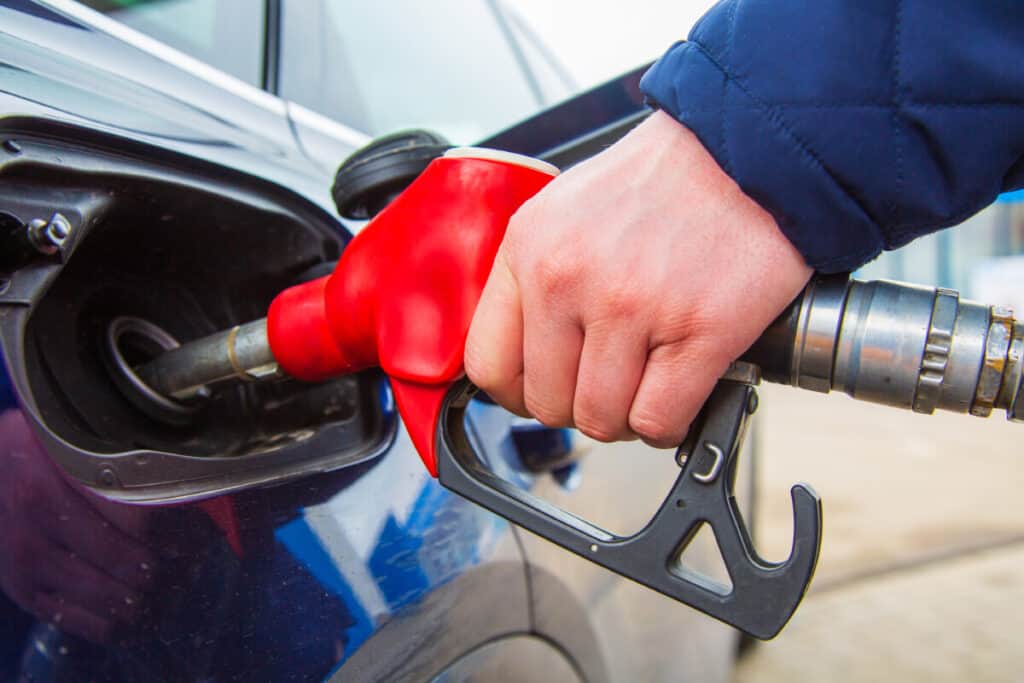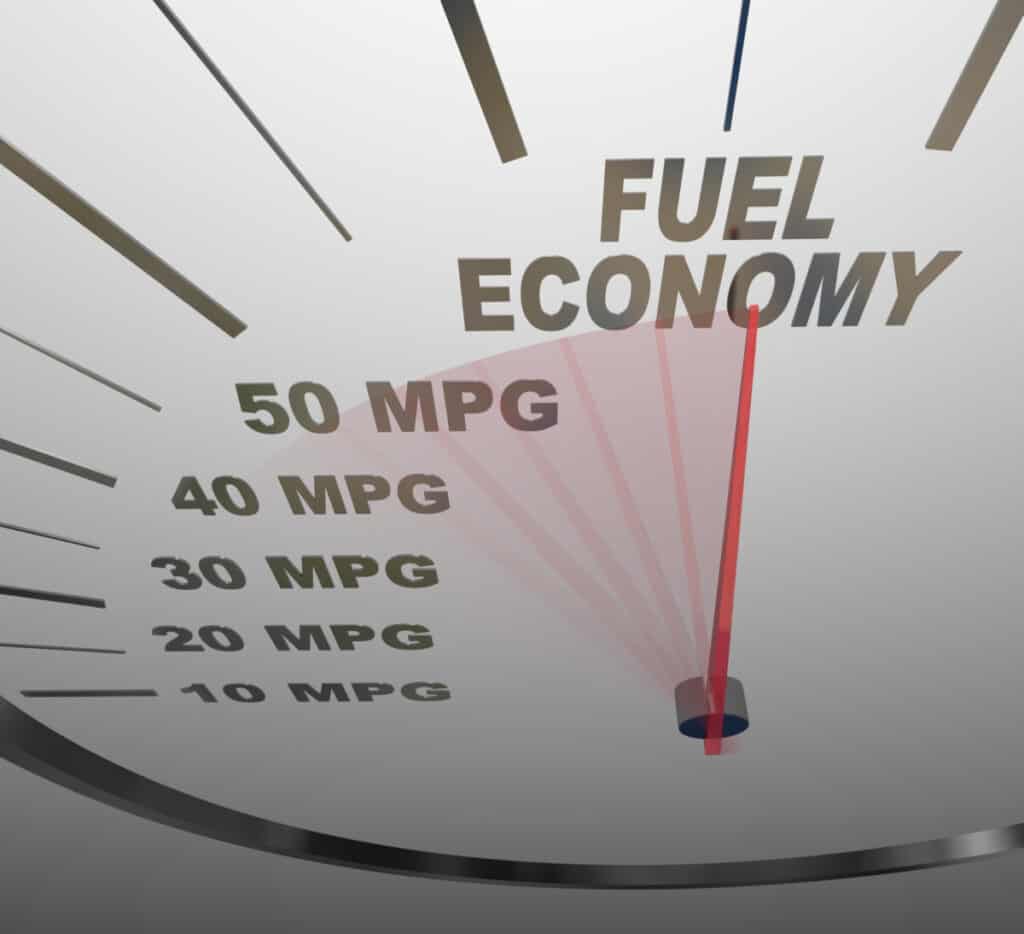What Type of Gas for Lexus RX 350? 87 vs 91 Octane Explained!
With gas prices steadily on the rise, drivers are left wondering what type of fuel they should use in their vehicles. The Lexus RX 350 is a luxury vehicle. For this reason, one may assume that it requires premium gasoline to run properly.
The Lexus RX 350 can use fuel with an octane rating of 87 or higher. In other words, drivers can use regular gasoline in this vehicle. However, RX 350 owners may hear knocking or pinging while accelerating or driving uphill. Drivers can usually avoid this problem by using a higher octane fuel.
Using the right type of fuel in your vehicle is important because it impacts the longevity of your engine. While octane rating is the primary factor people consider when purchasing gas, drivers should think about other aspects of fuel composition as well. Keep reading to learn more about the right type of fuel for the Lexus RX 350.
The Lexus RX 350 Fuel Type
The Lexus RX 350 owner’s manual recommends using fuel with no less than an 87 octane rating. But what type of fuel does that mean?
The U.S. Energy Information Administration labels premium fuel as having an octane rating of 91 to 94. Mid-grade fuel lands between 89 and 90 octane, and regular fuel has an octane rating of 87. With this information, you know that the Lexus RX 350 can use all types of fuel, but no less than regular.
Now, wait a second–is there a fuel less than regular? Standard gasoline fuel comes in three levels regular, mid-grade, and premium (as described above). However, not all fuel is created equally. Before you fill your Lexus RX 350 with regular gas, look at the octane rating. Some stations may have a regular fuel with around 85 octane. This fuel is not suitable for your vehicle. (Source)
Additionally, there are other fuel types besides the standard gasoline you find at a gas station. Gasohol–a mixture of ethanol and gasoline–is more expensive than standard gasoline. However, some prefer it because it has a lesser impact on the environment. If you choose to put gasohol in your vehicle never use anything less than 87 octane.
The Lexus RX 350 owner’s manual also discourages drivers from using gasoline that contains methanol. Methanol is essentially a synthetic (and poisonous) version of ethanol. Because methanol and ethanol are similar substances, it may be wise to avoid using both in your RX 350.
Another reason drivers should avoid using gasohol in their Lexus RX 350 is its negative impact on the vehicle paint. If you spill any gasohol on your Lexus RX 350’s paint, you will see it erode over time.
Lexus also informs drivers that they shouldn’t use gasoline that contains Methylcyclopen-tadienyl Manganese Tricarbonyl (MMT).
MMT is a substance added to fuel to enhance octane performance. The use of MMT results in a damaged emissions control system. This could disqualify you from using your vehicle in various states.
Before filling your vehicle with gas, verify that the station you are at doesn’t use methanol or MMT in their fuel.
Another substance to avoid in your fuel is lead. Lead also impacts the emission control system by damaging the three-way catalytic converter.
If you try a new type of fuel in your Lexus RX 350, pay special attention to how it performs. If you hear engine knocking, see vapor rising off the engine, or experience poor engine performance, don’t continue using that fuel type.
Engine Knocking: Is It Bad?

Using the wrong type of fuel will do more than disqualify your vehicle due to emissions tests. In fact, using the wrong fuel could damage the engine.
When driving your Lexus RX 350, you may occasionally hear a clicking or a knocking sound coming from inside of the engine. The first few times you hear this it may startle you.
In most cases, this sound is bad. Knocking and pinging occur because of the preignition of fuel in the engine. Some impacts of knocking include overheated spark plugs and poor engine performance. In other words, if your engine knocks, it’s not being fuel-efficient.
Surprisingly, the Lexus RX 350 owner’s manual advises drivers that some knocking during acceleration or uphill climbs is normal. While the occasional light knock isn’t going to break your engine, if the problem becomes more consistent, you may find yourself spending thousands of dollars on mechanical repairs.
Your Lexus RX 350 is most likely to knock if you use fuel with an octane rating of less than 87. Using fuel with a lower octane rating is usually the cause of knocking. That said, even when using 87 octane gas, your engine may knock too much. If your Lexus RX 350 engine knocks, consider using a higher octane fuel.
The Lexus RX 350 Gas Mileage

When you use the right type of fuel in your Lexus RX 350 (87 octane or higher, unleaded fuel), it is more likely to have increased fuel efficiency. However, the exact gas mileage your RX 350 will receive depends on the trim package.
All Lexus RX 350s have a 19.2-gallon capacity fuel tank. Take a look at the various gas mileage received for each of the 2020 Lexus RX 350 trims.
The 2020 RX 350 L AWD gets the lowest gas mileage of all 350 trims produced this year. In the city, the 2020 RX 350 L AWD gets 18 miles per gallon; meanwhile, on the highway, this model gets 25 miles to the gallon. This averages a combined fuel efficiency of 21 miles per gallon.
The 2020 Lexus RX 350 AWD, RX 350 F Sport AWD, and the RX 350 L FWD all get the same gas mileage. When driving in the city, expect to get 19 miles to the gallon. However, when you take these models on the highway, watch your fuel efficiency rise to 26 miles per gallon. On average, these three models will get you 22 miles to the gallon.
The most fuel-efficient RX 350 trims are the 2020 Lexus RX 350 FWD and the 2020 Lexus RX 350 F Sport FWD. These models get 20 miles per gallon in the city and 27 miles per gallon on the highway. Drivers can expect an average gas mileage of 23 miles per gallon in these models.
